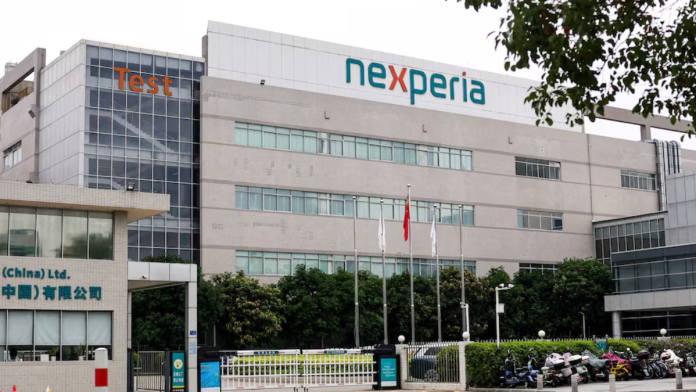The dispute between China and the Netherlands over Nexperia began in September, when the Dutch government used the Cold War-era Goods Availability Law to take control of the chipmaker. Nexperia is based in the Netherlands but owned by a Chinese parent company. Dutch officials said they were worried about the company’s management and its ability to handle new global trade pressures, especially those linked to the United States.
They said this could affect Europe’s supply of chips used in cars, electronics, and other products. An Amsterdam court later suspended Nexperia’s chief executive, citing poor preparation for upcoming trade challenges.
China objected to the Dutch move and responded by blocking re-exports of some Nexperia chips. This caused concern among European carmakers that depend on these components. Several warned that production could slow if chip supplies were disrupted.
China’s export ban and Europe’s concerns
China’s restriction on re-exports of Nexperia chips raised immediate concern, especially among European carmakers, who said even brief supply breaks could affect production. These small components are essential for car safety systems, engines, and digital displays.
China said the export ban was a direct response to the Dutch takeover action and argued that the move harmed the interests of the Chinese parent company. It also noted that the global chip market was already under pressure and that sudden decisions by partner countries could add instability.
The Netherlands said its intervention was meant to protect Europe’s supply chains, not to target China. Officials stressed the need to keep chip production and deliveries secure. Since the Goods Availability Law had never been used before, the decision drew wide attention.
China slaps new ban on Japanese seafood — diplomatic clash over Taiwan sparks trade showdown
Steps taken to ease the dispute
Over the past week, actions from both sides began to ease tensions. China said it would exempt some chips from its export ban. Reports indicated that this decision followed communication between the top leaders of China and the United States. Although details were not made public, China’s announcement opened the door for more dialogue.
After China’s announcement, the Netherlands decided to suspend its earlier order to take control of Nexperia. The economic minister said that recent developments made it the right time to take a constructive step. The suspension does not cancel the takeover order but puts it on hold. The minister can apply the order again if needed.
China welcomed the Dutch decision, calling it a “first step in the right direction.” Chinese officials said they hoped both sides would continue handling the issue properly. They added that problems in the global semiconductor supply chain still existed but recognised that the Dutch action reduced the immediate strain.
The European Union described the suspension as a helpful step toward stabilising chip supply chains. Germany said the situation was improving and that easing tensions was helpful for its car manufacturing sector, which relies heavily on electronic components.
China’s generals vanish as Xi’s purge tears through Rocket Force — nuclear command under suspicion
Why Nexperia’s role matters
Nexperia has long been part of Europe’s electronics sector. It was previously linked to a major Dutch technology company before being bought by its Chinese parent in 2018. The firm produces chips used in many basic electronic functions. These are not high-end chips but are important for everyday devices.
The Dutch government said it stepped in because it believed Nexperia’s leadership was not ready for new trade conditions from countries such as the United States. Officials said this lack of preparation could affect access to materials and equipment, increasing the risk of supply problems in Europe.
China disagreed and said the Dutch actions harmed its companies unfairly. It stressed that uninterrupted manufacturing was important for global markets.
After China announced export exemptions and the Netherlands suspended its takeover order, immediate pressure on the chip supply eased. The situation is still active, but these steps have lowered the risk of sudden disruptions. Industries across Europe, especially carmakers, continue to watch closely because they rely on Nexperia’s components to keep production running.


